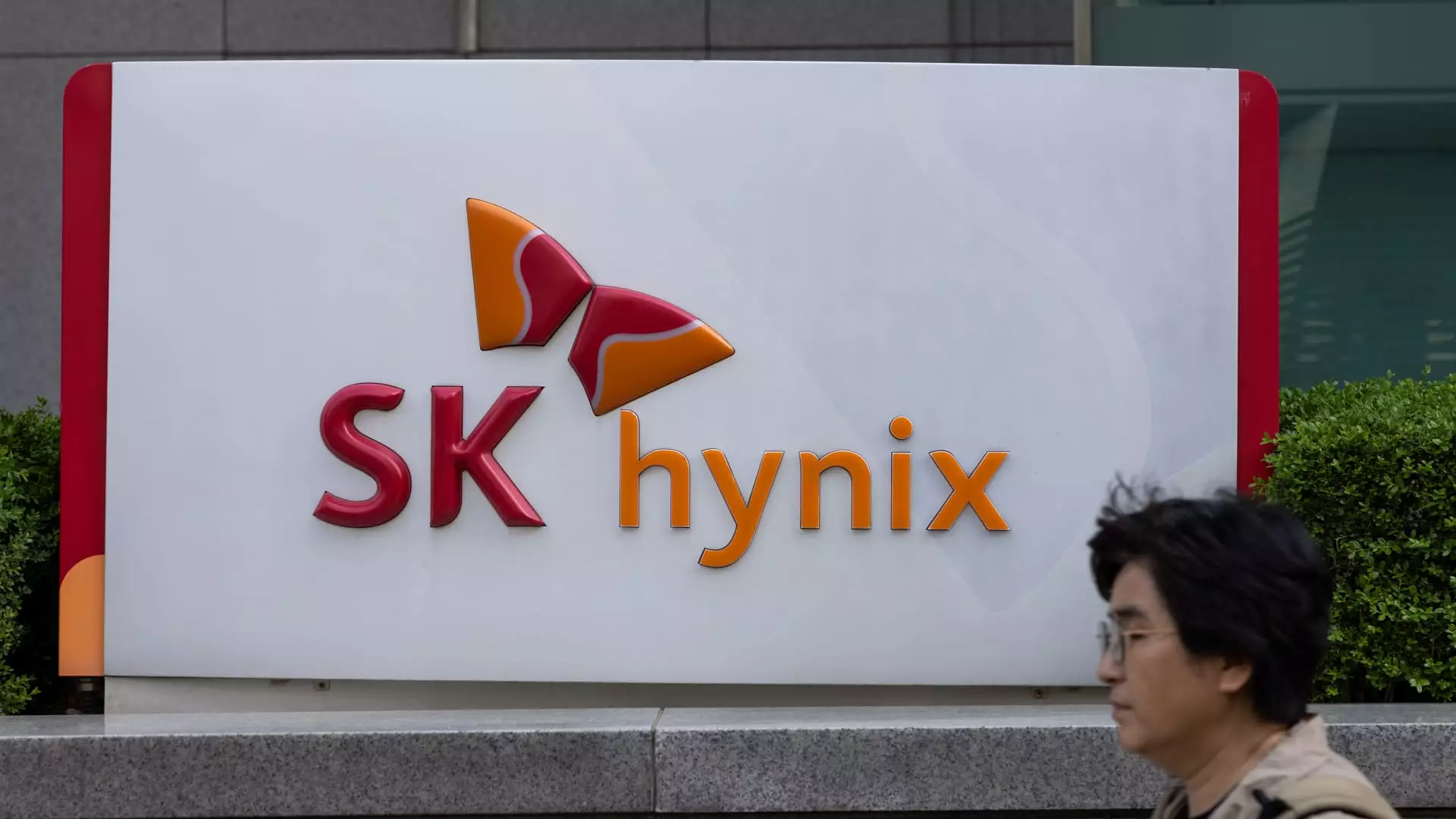SK Hynix, a South Korean memory chipmaker, has announced a significant turnaround in its financial performance. The company reported a net profit of 1.92 trillion South Korean won ($1.39 billion) in the first quarter of this year, marking a remarkable reversal from a loss of 2.58 trillion won in the same period last year. This positive income recorded by SK Hynix is the first since the third quarter of 2022, according to LSEG data. The firm’s revenue for the first quarter reached 12.43 trillion won, representing a whopping 144% increase from a year ago, and the highest revenue it has seen since the second quarter of 2022.
SK Hynix attributed its strong performance to an increase in the sales of AI server products, supported by its leadership in AI memory technology, particularly high-bandwidth memory. The demand for AI chipsets has been on the rise, and SK Hynix has been able to capitalize on this trend. Large language models such as ChatGPT have led to a surge in AI adoption, creating a need for high-performance memory chips that can handle complex tasks efficiently. To meet this demand, SK Hynix plans to increase the supply of HBM3E, the latest generation of high-bandwidth memory for AI applications.
Looking ahead, SK Hynix is optimistic about the growth of the overall memory market in the coming months, driven by rising demand for AI memory. The firm also expects the conventional DRAM market to start recovering from the second half of 2024. However, macroeconomic uncertainties such as inflation have led to fluctuations in consumer demand for electronics, impacting the prices and demand for memory chips. Companies like SK Hynix have had to adjust their production levels to address excess inventories and maintain profitability in the face of market challenges.
In response to the growing demand for AI chips, SK Hynix has announced plans to build a new fab in South Korea, with an estimated completion date set for November 2025. This new facility will increase production capacity for next-generation DRAM, including HBM, to meet the proliferating demand for AI chips. The company is also partnering with TSMC, the world’s largest contract chip manufacturer, to develop high-bandwidth memory 4 chips and next-generation packaging technology. Mass production of the HBM4 chips is expected to commence in 2026, leveraging TSMC’s leading-edge processes.
Despite the challenges posed by the memory chip market in the past, SK Hynix has managed to stage a remarkable turnaround in its financial performance. The company’s focus on AI memory technology, strategic partnerships, and expansion plans have positioned it well to capitalize on the growing demand for high-performance memory chips. As SK Hynix continues to innovate and adapt to market trends, it is poised for further growth and success in the semiconductor industry.


Leave a Reply